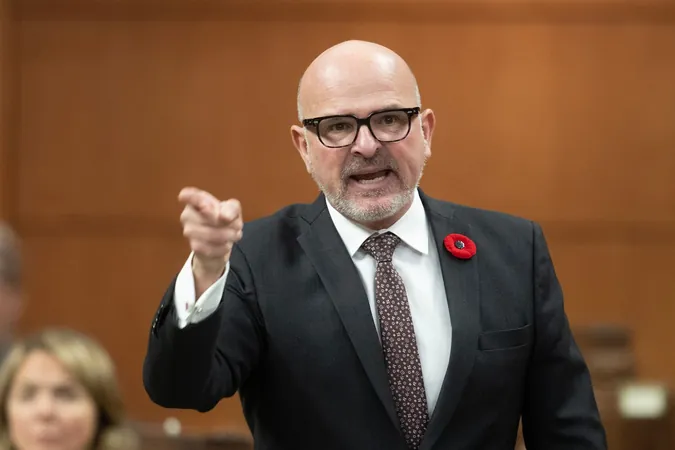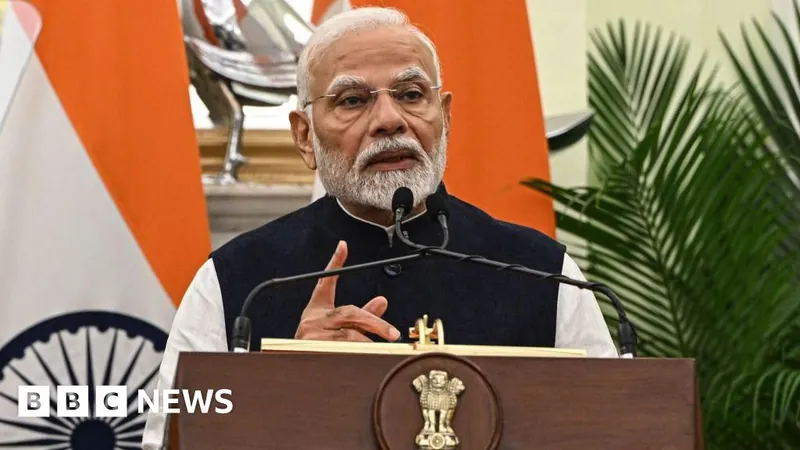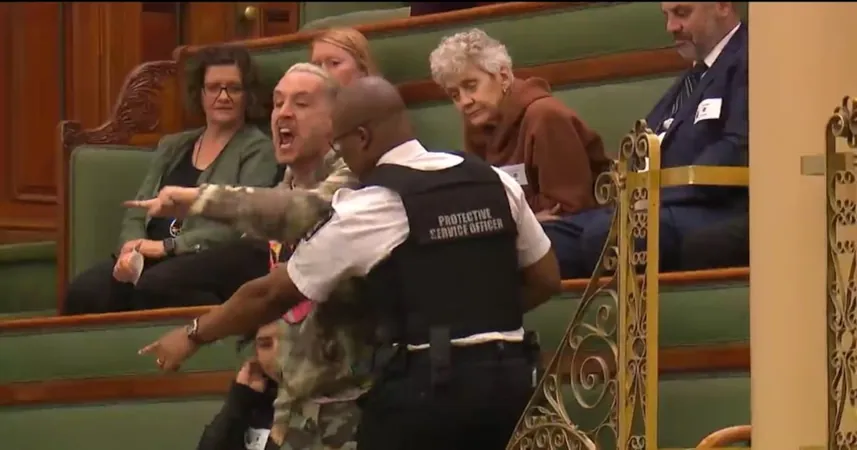
Trudeau Government Likely Exceeds Its Own Deficit Limits, Warns Budget Officer
2024-11-19
Author: Jacob
Trudeau Government's Fiscal Challenges
The fiscal future of Canada is under scrutiny as the country’s budget watchdog raises alarms over the current government's financial practices. Yves Giroux, the Parliamentary Budget Officer, has indicated that Justin Trudeau's administration is expected to exceed its self-imposed deficit limit, forecasting a staggering deficit of $46.8 billion for the fiscal year 2023-24. This figure is significantly higher than the $40 billion estimate previously provided by Finance Minister Chrystia Freeland in her April budget, and it challenges the credibility of the government’s commitment to fiscal discipline.
Delay in Fiscal Disclosure
The government is required to finalize and release its spending and revenue numbers by the end of the year, but traditionally, this information is shared in October. The delay in the release of these figures has sparked speculation that they might be worse than predicted, causing potential complications for Trudeau's party, which has struggled to maintain voter support amidst rising concerns over affordability.
Call for Greater Fiscal Accountability
Giroux criticized the delay, suggesting that it undermines fiscal accountability and leaves lawmakers in the dark as they vote on significant spending and policy measures. He advocates for a set release date of September 30 each year to prevent government manipulation surrounding the timing of these fiscal disclosures, arguing that good news might be highlighted while bad news could be buried.
Concerns About Future Economic Health
Furthermore, the uncertainty surrounding Canada's fiscal health has raised concerns regarding future economic statements, which typically summarize anticipated changes in spending and revenues. Giroux emphasized that missing their deficit targets could erode public trust in the government, although, as of now, he does not anticipate that it will have substantive repercussions on financial markets.
Pressure on Government Spending
In response to increasing inflationary pressures, Finance Minister Freeland has faced calls from economists to restrain government spending. Last November, she introduced a fiscal anchor to hold the 2023-24 deficit at or below $40.1 billion while also promising a decline in the deficit-to-GDP ratio. Currently, Canada’s deficit equates to about 1.4% of its GDP, a figure that, while lower than that of the United States, prompts consideration of Canada’s unique economic context as it does not hold the world's reserve currency.
Bond Market Confidence
The bond market has demonstrated some confidence in Canada's fiscal position, with the country maintaining an AAA credit rating and demand for its debt remaining high despite the wider spread between Canadian and U.S. yields. Nevertheless, the political landscape is increasingly challenging for the Liberals, who trail behind the Conservatives by around 20 points in most opinion polls.
Outlook for the Future
As inflation stabilizes near the 2% target and the Bank of Canada continues to manage interest rate adjustments, the government may find itself under pressure to announce additional spending measures or tax relief as the electoral landscape shifts ahead of the anticipated 2025 elections.
Conclusion
In summarizing, Giroux notes that Canada has the fiscal capacity to run larger deficits, suggesting that while it may be feasible to increase spending or reduce taxes, the optimal strategy might involve focusing on reducing the debt-to-GDP ratio, a decision ultimately left in the hands of the electorate.









 Brasil (PT)
Brasil (PT)
 Canada (EN)
Canada (EN)
 Chile (ES)
Chile (ES)
 España (ES)
España (ES)
 France (FR)
France (FR)
 Hong Kong (EN)
Hong Kong (EN)
 Italia (IT)
Italia (IT)
 日本 (JA)
日本 (JA)
 Magyarország (HU)
Magyarország (HU)
 Norge (NO)
Norge (NO)
 Polska (PL)
Polska (PL)
 Schweiz (DE)
Schweiz (DE)
 Singapore (EN)
Singapore (EN)
 Sverige (SV)
Sverige (SV)
 Suomi (FI)
Suomi (FI)
 Türkiye (TR)
Türkiye (TR)